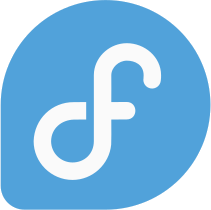@vancha The world needs more GTK programming tutorials in general! If I don't understand the documentation it is a lot of trail and error until I know how things work... And this is very often the case...
I'm torn between these for L5 development:
1) GTK/Libhandy/Builder/Glade (hard to figure out with Rust but most native to L5 and continuous improvements for mobile usecase)
2) Druid - Rust with well though out reactive UI architecture that fits Rustlang nicely (but no Libhandy and not ready for prod yet afaict):
https://github.com/linebender/druid
3) Flutter Desktop Linux (getting close to working on aarch64, but not yet)
https://github.com/flutter/engine/pull/20254#issuecomment-694546839
@tomek @ITwrx @zwerg12 I'm not stopping to learn gtk-rs with builder, libhandy and glade until i can write a useful application. I really think that stack is going to be really useful for mobile applications in terms of being low overhead (and thus power efficient) and expressive.
If I was a better programmer it might not have taken so long, but it can't hurt to just keep at it ^^
+1 - right now it's really the the best option, especially if you have to learn from scratch
I already know Flutter and so that would be the easiest for me if it worked well enough, and I could develop one application for all mobile platforms (L5/Android/iOS) at the same time. So it would be easy/free to do L5 apps, but probably not as small/fast/efficient/native as pure GTK/Libhandy. Will it be "good enough" though? Too early to tell right now...
I can't say anything about any of these 3 programming tools because I am using GTK/Libhandy/Builder in combination with C.
I had four main goals for my project:
1) Using only basic libraries to reduce the amount of dependencies and keep the app size small
2) Use C to learn the language because I want to do some kernel stuff in the future
3) Fast speed to be energy efficient: I use heavy calculations in my app
4) Designed perfectly for the L5
I have also been thinking about just going pure C with GTK. For that, Kevin O'Kane has a nice set of tutorials to learn from on Youtube:
https://www.youtube.com/watch?v=g-KDOH_uqPk&t=3s
@zwerg12 @tomek You' ve probably already seen it, but since you haven't crossed off the "Calculate sunrise and sunset at a specific day", is this pdf in any way useful to you?
https://www.esrl.noaa.gov/gmd/grad/solcalc/solareqns.PDF
Oh thanks! No I haven't seen this pdf yet. Looks interesting because it is a different approach like the ones I have seen until now. I have some books which I use for calculations furthermore I am a physics student which helps. However, the calculations are often numeric fits to measured data which makes it hard to follow where some formulas come from. This pdf is a good example that different people sometimes receive different values. I must check which formula is the most precise :D
@zwerg12 ah good :D I remembered you did your own calculations from when I went over your code ^^ I hope it helps!


@tomek
https://gitlab.com/Zwarf/picplanner
It's an app for photographers who want to know when and where the sunrise and sunset is, where to find the milky way at night and so on. There are apps for Android and iOS but not for Linux and I need this app to use the L5 as daily driver. I am not that far at the moment but I want the basic functions to work until end of the year :D